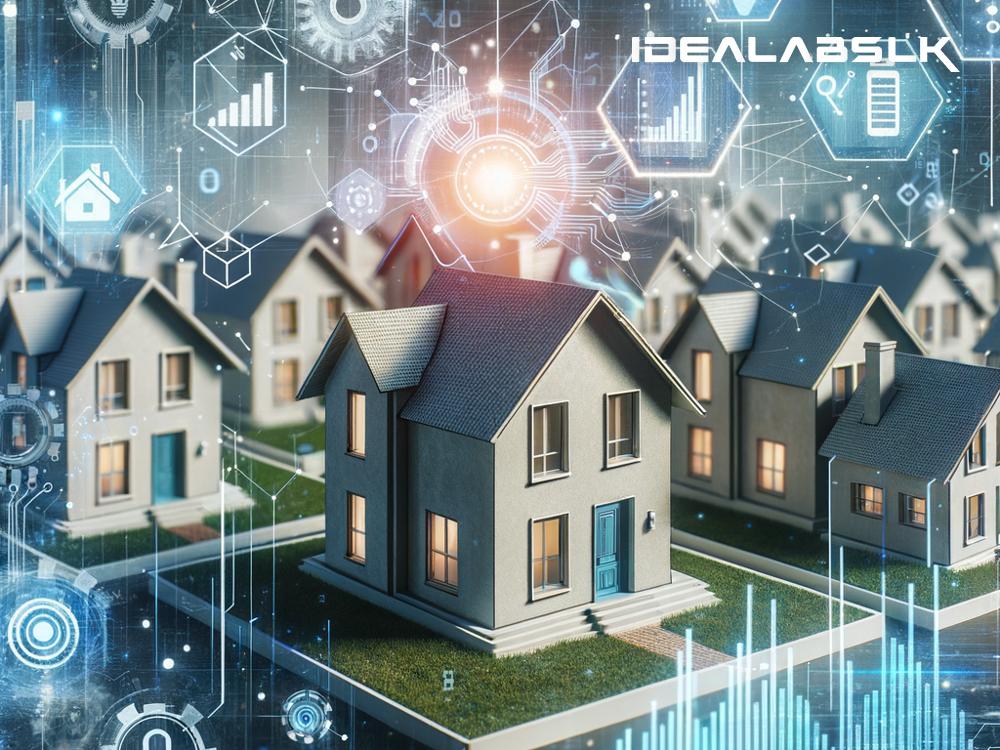AI for Real Estate Supply Chain Management: Simplifying Complexity
The world of real estate is vast, involving countless processes that extend well beyond the buying and selling of property. From construction to maintenance and beyond, every step in the real estate supply chain is intricate, involving multiple stakeholders and requiring precision. But as we venture further into the 21st century, artificial intelligence (AI) is emerging as a game-changer, promising to simplify and optimize these complex processes. Let's explore how AI is making a significant impact on real estate supply chain management, breaking it down into simple English.
Understanding the Real Estate Supply Chain
Before diving into the role of AI, it's essential to grasp what the real estate supply chain encompasses. Imagine it as a long journey where a piece of land becomes a livable space. This journey involves planning, designing, constructing, managing, and maintaining properties. Each step relies on various services and suppliers, from architects and builders to property managers and maintenance crews.
Managing this supply chain efficiently is crucial. Any delays, miscommunications, or errors can escalate costs and affect timelines, profitability, and customer satisfaction. Historically, people managed these complexities through spreadsheets, phone calls, and paperwork – methods that are prone to human error and inefficiency.
The Role of AI in Revolutionizing Real Estate Supply Chain
Enter AI, a technology capable of learning, adapting, and making decisions or predictions based on data. Here's how AI is simplifying the real estate supply chain, one step at a time:
1. Predictive Analysis for Planning and Design
AI can analyze vast amounts of data, including market trends, environmental data, and urban development codes, to predict the best use of a land parcel. It can help in designing properties by understanding consumer preferences and predicting future trends, ensuring that new constructions meet both current and upcoming demands.
2. Optimizing Construction
AI algorithms can streamline the construction process. From scheduling work to predicting potential delays due to weather conditions or supply chain disruptions, AI ensures that projects stay on track. Moreover, AI can optimize the ordering of materials, ensuring that the right quantities are delivered at the right time, minimizing waste and storage costs.
3. Maintenance Predictions
AI doesn’t stop once a building is constructed. Through predictive maintenance, AI algorithms can analyze data from various sensors within buildings to predict when parts of a building may need repair or replacement, reducing downtime and unexpected expenses.
4. Streamlining Property Management
From setting optimal rental prices to vetting tenants, AI systems are capable of managing properties more efficiently than ever before. AI can also improve tenant experience, using chatbots for communication and automated systems for requesting and tracking maintenance tasks.
5. Enhancing Customer Service
For real estate companies, providing exemplary customer service is a key factor for success. AI-powered systems can handle customer inquiries 24/7, provide personalized property recommendations, and even give virtual property tours, improving the overall customer experience.
The Benefits of AI in Real Estate Supply Chain
The advantages of integrating AI into the real estate supply chain are vast. They include but are not limited to:
-
Efficiency Improvements: By automating and optimizing processes, tasks that used to take days can now be completed in hours or minutes.
-
Cost Reduction: Minimizing waste, optimizing resource use, and preventing maintenance issues can substantially reduce costs.
-
Enhanced Decision Making: With AI's predictive capabilities, real estate professionals can make more informed decisions, backed by data.
-
Improved Customer Satisfaction: By offering better services and experiences, businesses will see higher customer satisfaction and loyalty.
Looking Ahead
As we look to the future, the role of AI in the real estate supply chain will only grow. The technology is becoming more sophisticated, capable of tackling more complex challenges and offering even more impressive benefits. For businesses in the real estate sector, adopting AI technologies is not just about staying competitive; it's about redefining what's possible in the world of real estate supply chain management.
In conclusion, AI is not just a buzzword; it's a transformative force in the real estate supply chain. By simplifying complexities at every stage, AI is setting a new standard for efficiency, cost savings, and customer satisfaction. As we embrace this technological revolution, the future of real estate looks brighter (and smarter) than ever.

